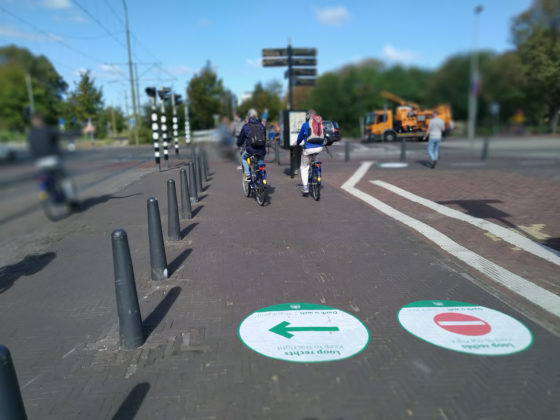Coronavirus cases approach 7,000 a day, more restrictions ‘inevitable’


Nearly 7,000 people tested positive for Covid-19 in the latest 24-hour window, making tougher disease control measures on Tuesday all but inevitable.
Altogether 6,854 positive tests were recorded at 10am on Monday, nearly 500 more than the previous record set on Saturday. Prime minister Mark Rutte and health minister Hugo de Jonge are expected to announce the latest measures on Tuesday after taking advice from the Outbreak Management Team.
‘We must brace ourselves for further measures,’ said De Jonge on Monday as he emerged from a meeting with Rutte, justice minister Ferd Grapperhaus and deputy health minister Tamara van Ark.
There has been speculation that a nationwide curfew could be introduced as well as further restrictions on public gatherings. The cabinet is not thought to be considering closing schools and has so far resisted calls to make the wearing of face masks compulsory.
The much-delayed Coronamelder app finally went live on Saturday and has been downloaded more than 2 million times, but there are still problems with testing capacity and contact tracing.
The number of Covid patients in hospital increased by 65 on Monday to 1,298, while 252 patients are in intensive care, an increase of five. Another 17 deaths were recorded by the public health RIVM, though some of these are from previous weeks.
Amsterdam had the highest number of infections in Monday’s figures with 584, while another 433 were reported in Rotterdam and 286 in The Hague. The mayor of Rotterdam, Ahmed Aboutaleb, is among those who tested positive and has gone into self-isolation for seven days.
Several hospitals have started delaying non-emergency treatment as they prepare for an influx of second-wave coronavirus patients. The Haaglanden and Hollands-Midden regional safety boards, which include The Hague and Leiden, have cut back routine healthcare by 40 per cent.
Ernst Kuipers, of the national co-ordination centre for patient dispersal, said more than 4,500 Covid patients could be in hospital if the current trend continues. Even in the best case scenario, where infections start to go down in the next week, the number is likely to double, he added.
‘We need to push the curve downwards as fast as possible, otherwise we will be facing a drastic downsizing of regular healthcare,’ said Kuipers. In the worst case scenario up to 75% of procedures could be delayed or cancelled.
How did the Netherlands become one of Europe’s second wave hotspots?
Thank you for donating to DutchNews.nl.
We could not provide the Dutch News service, and keep it free of charge, without the generous support of our readers. Your donations allow us to report on issues you tell us matter, and provide you with a summary of the most important Dutch news each day.
Make a donation